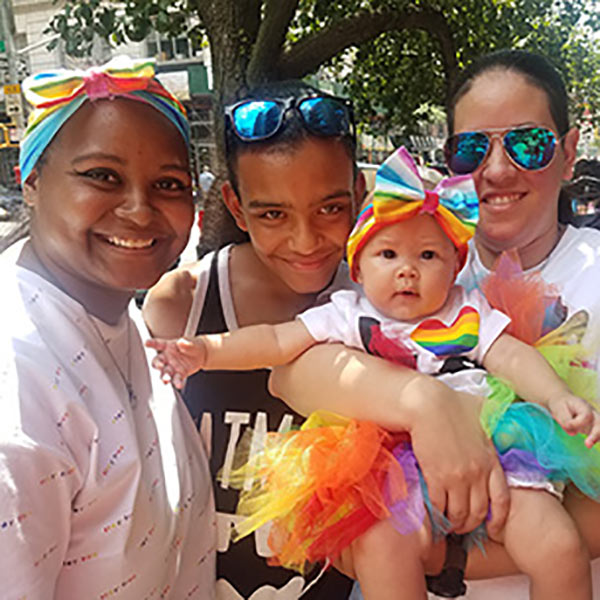The very title of the form given to parents of newborns tells you what’s wrong with it: “Acknowledgement of Paternity.” It’s also revealing to see which parents it’s offered to: opposite-sex, unmarried couples only.
Thankfully, that form is now history, and the Connecticut legislature has made history by passing this spring what advocates call the most progressive parentage–not “paternity” –law in the country.
As of July 1, 2022, hospitals will offer an “Acknowledgement of Parentage” form to all new parents, however they got there, including via assisted reproduction and surrogacy. The latter provisions also benefit opposite-sex couples using those measures.
The law’s chief drafter, Yale Law School Professor Doug NeJaime, says “Connecticut now has perhaps the most comprehensive, most inclusive, and most child-centered parentage law in the country. Our state has taken the important step of protecting children’s relationships with their parents—the most important relationship for a child’s development—regardless of their parents’ gender, sexual orientation, gender identity, or marital status. And our state now recognizes the important principle that the bond between a parent and child does not depend on a genetic connection but instead on the day-to-day work of parenting.”
The law will spare Connecticut’s LGBTQ+ parents the expense and indignity of having to adopt their own children. It will provide children the security of allowing their parents to be… parents with full recognition.
The child of two moms, Annastasia Martineau, told legislators at a March public hearing, “So many queer Connecticut families like mine struggle with health insurance, making medical decisions, and access to other basic benefits because of the lack of protections around who can be a legal parent. No child should have to live with the burden of knowing that one of their parents could be seen as less than the other in the eyes of the law.”
Once the law takes effect, parents can retroactively fill out the form through the Department of Health and Human Services at no cost. Ansonia resident Stephanie Ocasio-Gonzalez can’t wait for that day, when she and wife Denise Gonzalez will secure Denise’s parental status for their two-year-old daughter. “I will probably be a blubbering mess!” says Ocasio-Gonzalez. “I always worried about what would happen if something happened to me. Especially when the pandemic hit. I wouldn’t want my family to go through grieving and at the same time go through this legal stuff about who’s going to be the parent. To say this means piece of mind is so lacking.”
When the law was passed, she says, “I felt such weight off my shoulders, I felt like I could float.” The couple also has a 14-year-old son to whom Gonzalez has been mother since the boy was three. In that case, because she was not the “intended” parent, she will have to establish parentage through a court adoption.
At least two million children nationwide are being raised by LGBTQ+ parents, and 29% of LGBTQ+adults are raising children, according to the Family Equality Council.
The bill was approved almost unanimously: Mark W. Anderson (R –Granby) cast the sole no vote.
Rep. Jeff Currey (D- East Hartford, Manchester and South Windsor) was the bill’s principal sponsor. He says, “With the signing of the Connecticut Parentage Act into law, our state has significantly strengthened the legal right to parentage for all parents and children in Connecticut. After putting this bill on hold last year due to the coronavirus pandemic, it is a tremendous victory for our state.”
—Jane Latus








More Stories
Theater Kid
Queer Joy and Queer Resilience
Transforming Sexuality: Handling Sexual Changes for Trans Folks